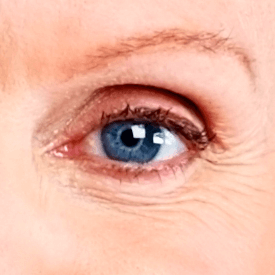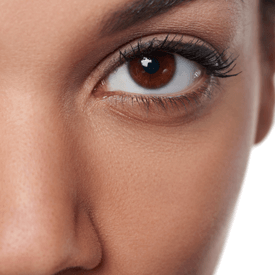

ABOUT RETINAL DYSTROPHIES
Inherited, or hereditary, retinal dystrophies refer to a wide variety of conditions that affect different parts of the retina due to a genetic defect. The retina, the light-sensitive portion of the eye, is built up of many parts including the macula. This is the central component of the retina that is responsible for helping with minute details, colors, and the finer aspects of vision. Within the macula and retina are millions of parts referred to as cones and rods, which consist of thousands of cells and fibers. Most inherited retinal dystrophies affect the macula and the cones found within it, which results in gradual loss of acuity, color vision, and contrast sensitivity, as well as central visual field defects. Other mutations that affect the rods within the retina are characterized by vision issues at night and loss of peripheral vision. With the many diseases and hereditary patterns that can occur, it is important for patients to obtain an accurate diagnosis. Our board-certified retina specialist, Dr. Shalesh Kaushal, can help diagnose and treat retinal and macular dystrophies at his practice in Ocala, FL. Schedule a consultation with him at Comprehensive Retina Consultants and receive the treatment you need today.
INHERITED RETINAL DYSTROPHIES CAUSES AND SYMPTOMS
Inherited retinal and macular dystrophy is caused by mutations in certain genes that are passed down through different, varying hereditary patterns. There is a wide variety of diseases and types of dystrophies. However, the most common is retinitis pigmentosa, which affects the photoreceptor (light-sensitive) cells in the retina and causes some of them to fade and eventually die. A telltale sign of this particular condition and most other retinal dystrophies is peripheral vision loss, causing what is referred to as “tunnel vision.” Another common sign is difficulty seeing at night and in the dark. Some other symptoms can include:
- Trouble identifying objects at ground level, eye level, and above
- Running into or easily tripping over objects
- Having difficulty identifying lines and markers on the road and on footpaths
- Trouble walking up steps, hills, and on uneven ground
- Having an unusual amount of sensitivity to bright lights
- Having issues adjusting to changes in light and time of day
- Having a limited view of objects
- Images appearing to be broken up or cut off
INHERITED RETINAL DYSTROPHIES DIAGNOSIS
It is very important to receive an accurate diagnosis so Dr. Kaushal can treat each condition in a way that will benefit the patient the most. Some common tests to check for inherited retinal dystrophies are:
Subjective retinal tests: These include color vision tests, which check for common and more rare cases of color blindness, and dark adaptometry, which checks for night vision issues.
Objective retinal assessment: This can involve a fluorescein angiography or ERGs (electroretinograms) and EOGs (electro-oculograms), which both measure the retina’s electrical behavior such as responses and sensitivity to light.
Genetic Testing: With advances in technology, it is now possible to test for multiple gene mutations at a time as opposed to conventional genetic testing.
Dr. Kaushal will review each case carefully and determine which method(s) will produce the most accurate and appropriate results for every individual.
INHERITED RETINAL DYSTROPHIES TREATMENT AND PROGNOSIS
The prognosis for a chronic inherited retinal dystrophy is different per individual and case, with the best cases experiencing slow progression of the disorder. In very rare instances, some patients may experience severe central vision loss that leads to blindness.
Since it is a chronic illness, there is no one or definitive cure. There are ways to manage symptoms, slow the progression, and help preserve the vision. Rehabilitation is the most popular form of treatment recommended, with involves focused training on visual aids in low light situations, how to navigate certain symptoms, and mobility training. Light avoidance and the use of sunglasses may also be helpful to prevent further progression as well as avoiding harmful substances like smoking. Currently, there has been progress made in the field of gene therapy, which is under FDA review, and there are continual research developments being made on retinal dystrophies.
TRUSTED SPECIALISTS
Retinal and macular dystrophies are serious issues that can greatly affect your vision and quality of life. It is extremely important to have regular monitoring and a proper diagnosis from a trusted specialist like Dr. Kaushal. He cares about each individual and will conduct the testing necessary to ensure you receive the proper treatment and evaluation throughout your journey.


